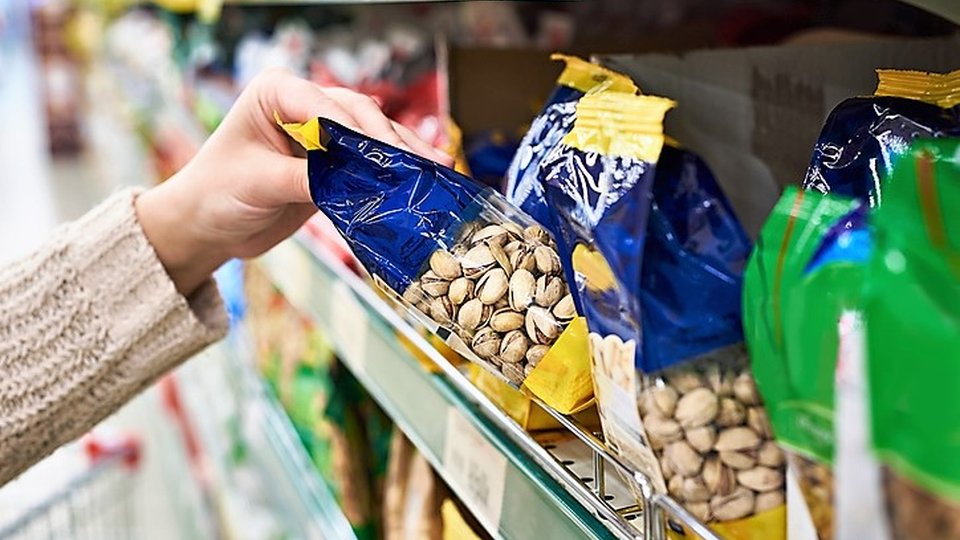Micro Markets
Micro markets’ sanitation case over vending
In response to concerns over COVID-19, micro market providers argue that micro markets are actually more sanitary than vending machines.

June 17, 2020 by Elliot Maras — Editor, Kiosk Marketplace & Vending Times
Editor's note: This is part two in a two-part series comparing the sanitation of vending machines with micro markets on account of the COVID-19 pandemic.
COVID-19, more than any other factor in recent history, has jumpstarted touchless solutions in workplace breakrooms. And while convenience services operators explore these new solutions to ensure customer safety, customers for the time being continue to purchase food and refreshments from existing equipment as breakrooms gradually reopen following the COVID-19 lockdown.
Which raises the question: which self-service format is safer — vending machines or micro markets? Which format has fewer touch points?
Convenience service operators interviewed at random in part one of this two-part series acknowledged customers cannot remove a product from a vending machine without buying it, unlike a micro market. Nevertheless, they didn't view micro markets as less sanitary.
Micro market providers, for their part, have studied the question in depth and argue that micro markets are actually more sanitary than vending machines.
Providers weigh in
Avanti Markets recently published a comparative sanitation analysis, titled, "Micro Markets & Vending, Best Option for COVID-19." The analysis compares the number of times a customer touches a hard surface in a micro market to that of a vending machine. According to the analysis, a customer can use a mobile device or market card when using a micro market, whereas with vending, they need to touch selection buttons, pay with cash or swipe a payment card.
The analysis acknowledges that a customer could sneeze or cough on a packaged product while perusing selections in a micro market. However, the operator can address this possibility by posting a sign to instruct customers to wear masks when shopping and take whatever products they touch.
Vending machines, on the other hand, require customers to reach into a delivery chute that other customers have also touched, the analysis noted.
To keep surfaces clean, Avanti Markets encourages operators to use NanoSeptic solution that continuously self cleans surfaces.
Avanti Markets also offers no-touch purchases by allowing customers to pay by scanning a market card, scanning a mobile app or using a tap bank payment card. It is also possible to use a stylus pen with a rubber end, a cloth or a napkin or latex gloves to touch the touchscreen.
Both scenarios require someone to touch product when stocking.
Touchless payments
365 Retail Markets also allows touchless payment with its recently introduced mobile app, called 365Pay.
"Consumers have always been able to use our frictionless scan/pay experience and check out using only their phone, and we've added the ability to order ahead from the cafeteria to the 365Pay app as well," Ryan McWhirter, vice president of product management at 365 Retail Markets, told Vending Times.
This benefit will not be exclusive to micro markets, McWhirter said, as the 365Pay app will soon be enabling touchless selection and payment at vending machines as well. Customers will be able to view the machine menu, order ahead and scan and pay using their smartphone.
Three Square Market also offers an app which it recently enhanced to support a completely touchless checkout experience, said Patrick McMullan, company president.
"Additionally, we are testing new handles to be used on our coolers/freezers so that people can use their forearms to open doors," McMullan said.
To eliminate risk of contamination, however, requires changing consumer behavior, McMullan said. "We encourage this through digital marketing and merchandising signage," he said.
"Add to that the ability to closely monitor markets through CCTV, that mishandling/multiple handling by consumers can be addressed in a real time fashion," McMullan said.
"I believe markets to be one of the safer areas for consumers to purchase food," he said.
Surveillance video tracks touch points
Aaron Speagle, CEO of Breakroom Provisions as well as Piedmont Vending in Conover, North Carolina, has quantified the number of times a customer touches a micro market versus a vending machine.
Speagle developed a video surveillance system called TheftDetective, an automated surveillance system for micro markets that records customer activity in break rooms. The system can also be used to monitor vending machines.
In reviewing his surveillance videos, Speagle claims that customer touch points are 50% to 75% less in a micro market than a vending bank.
"When a person purchases from a vending machine, they touch selection buttons in addition to touching the products," Speagle said. "That translates a meal to be two to four groups of touches of equipment per purchase of goods," he said.
During a micro market purchase, by contrast, the customer only touches the product if they have a market card, and if not, they only touch the screen.
"Through TheftDetective, we can see that less than 1% of the time people will pick up an item and then put it back," Speagle said. "Also, they put that item back in a group of hundreds of items that the next customer may never touch."
"Furthermore, micro market sales of foods are two to three times higher than vending sales, which reduces the amount of times an employee gets food from another outside source which would increase those touches," Speagle said.
How often do operators clean?
Robert Liva, a longtime former operator who now builds micro market display fixtures through his company Graphics That Pop, doesn't pull any punches when it comes to the sanitation issue.
"They're delusional," he said in response to anyone who argues that vending machines are more sanitary than micro markets. "How often do people clean their vending machines inside and out?" he asked. "They're so over worked, the route drivers, they don't have time to clean."
As for micro markets, "You can clean everything," Liva said.
For an update on how the coronavirus pandemic is affecting the convenience services industry, click here.
About Elliot Maras
Elliot Maras is the editor of Kiosk Marketplace and Vending Times. He brings three decades covering unattended retail and commercial foodservice.
 ChatGPT
ChatGPT Grok
Grok Perplexity
Perplexity Claude
Claude






